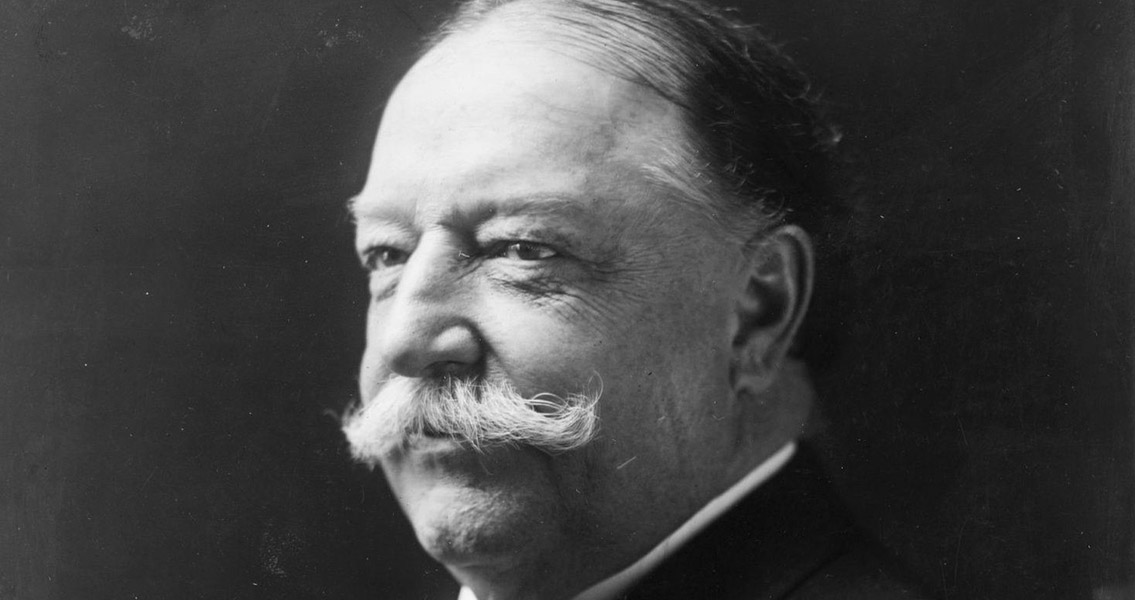<![CDATA[It was a landmark appointment which quickly revealed the lingering antisemitism in US society in the early twentieth century. In 1916, US President Woodrow Wilson nominated Louis Brandeis to the Supreme Court. Four months later the appointment was confirmed, and Brandeis became the first Jewish Supreme Court Justice. Brandeis' appointment, and Wilson's support of him, proved controversial. Opposition, in part fueled by antisemitism, had prevented Wilson from appointing Brandeis as Attorney General in 1913. Unperturbed, the incumbent president remained determined to put Brandeis in a prestigious public position, and the opportunity finally came in 1916. Now, a letter to be auctioned in Los Angeles on 28th April provides a startling reminder of the anger Brandeis' appointment caused. The document in question was written by former US President William H. Taft to Washington based journalist Gus J. Karger. It was sent just four days after Brandeis confirmation by a vote of 47-22. In the letter, Taft labels Brandeis a Zionist, and complains about the "clannishness" of the USA's Jewish communities. Brandeis was controversial for a host of reasons, not just his Jewish faith. In his early career he had been a leading figure in the progressive movement, demonstrating explicitly left wing ideology. In the twentieth century he frequently stood against big business and growing monopolisation within the American economy, "Understand, I am not for monopoly when we can help it. We intend to restore competition. We intend to do away with the conditions that make for monopoly." he said, in an address to the Economic Club of New York in 1912. He also made clear his objection to the mass consumerism which was coming to slowly envelope every aspect of American life, altering the fundamentals of American society. He declared that the consumer, "had abrogated his (the consumer's) role as a countervailing power against bigness... He lies not only supine, but paralyzed, and deserves to suffer like others who take their lickings 'lying down.'" Unsurprisingly, Brandeis was a figure who alienated conservatives and big business, and many were shocked that Wilson had decided to push through such a controversial appointment just months before an election. Taft was probably one of the most high profile objectors to Brandeis' appointment. Wilson's predecessor as US president (serving from 1909 -1913), Taft had held a lifelong dream of serving as a Supreme Court Justice. His presidency had been a divisive one, characterised by his alienation of America's progressives and ultimately ending in a humiliating defeat when he attempted to win reelection. Hoping that he would get the vacant Supreme Court seat, Taft made his feelings very clear in the letter. "He (Brandeis) is a muckraker, an emotionalist for his own purposes, a socialist, prompted by jealousy, a hypocrite, a man who has certain high ideals in his imagination, but who is utterly unscrupulous in method of reaching them, a man of infinite cunning, of marked ability in that direction that hardly rises above the dignity of cunning, of great tenacity of purpose, and, in my judgement, of much power for evil." Later in the letter, Taft commented on the American-Jewish communities of the United States, his words revealing the continued negativity Judaism was faced with, "...the leading Jews of the country told Wilson that Brandeis was not a representative Jew. Since that time, Brandeis has adopted Zionism, favors the new Jerusalem, and has metaphorically been re-circumcised." Taft declared, "He has gone all over the country making speeches, arousing the Jewish spirit, even wearing a hat in the Synagogue while making a speech in order to attract those bearded Rabbis whose invitation to the silver wedding in such numbers you promoted. If it were necessary, I am sure he would have grown a beard to convince them that he was a Jew of Jews." This remarkable document, close to a century old and reflecting a politically charged period of US history, is being auctioned by Nate D. Sanders. Bidding will start at $15,000 for this remarkable window into the life of Taft, and the workings of American politics in the early twentieth century. ]]>
Anti-semitic Letter From Ex-President Up for Auction
